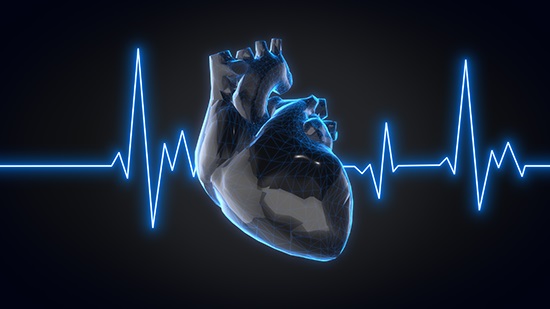Electrophysiology

Electrophysiology (EP) evaluates the electrical system of the heart.
It can help diagnose abnormal heartbeats, or arrhythmias, that may result in either too fast or slow heartbeats.
Once diagnosed, patients can receive various treatments depending on the condition.
What Is an Electrophysiologist?
An electrophysiologist is a cardiologist who specializes in heart rhythm disorders.
They diagnose and treat conditions that affect the normal electrical signals of the heart, such as atrial fibrillation, bradycardia, tachycardia, ventricular fibrillation, sudden cardiac arrest, and heart failure.
Electrophysiologists use tests, devices, procedures, medications and lifestyle recommendations to restore healthy heartbeats.
Electrophysiology Procedures
The electrophysiology lab at University of Maryland Capital Region Health provides advanced cardiac rhythm care to Prince George’s County residents.
The lab offers a full spectrum of EP procedures, including:
- Cardiac rhythm management device implants – loop recorders, pacemakers, biventricular devices, and implantable cardioverter-defibrillators
- Simple and complex ablations – electrophysiology studies, SVT ablation, atrial flutter ablation, atrial fibrillation ablation and ventricular tachycardia ablation
Patients can go home the same day of their procedure in most instances.
Serving Prince George's County and Southern Maryland
UM Capital Region Health is the only location in Prince George’s County and southern Maryland that performs complex ablations.
Dr. Mohit Rastogi, director of the electrophysiology lab, is one of a few electrophysiologists in the region who performs complex ablations without the use fluoroscopy. Instead, he uses intracardiac echocardiography and advanced three-dimensional imaging. This means patients and staff are not exposed to ionizing radiation during the procedure.
The Latest Techniques
Electrophysiology technology has advanced in the last five years. Catheters now have advanced contact force technology that allows us to know when we have good tissue contact.
Computer mapping software helps us to visualize, in real-time, multiple catheters in the heart and develop complex maps of patients' arrhythmias, as well as the tissue structure of the heart.
A Multidisciplinary Team
All patients have a general cardiologist who oversees their cardiac care and refers them to the appropriate sub-specialists as needed, including specialists with the University of Maryland cardiothoracic surgery team.
